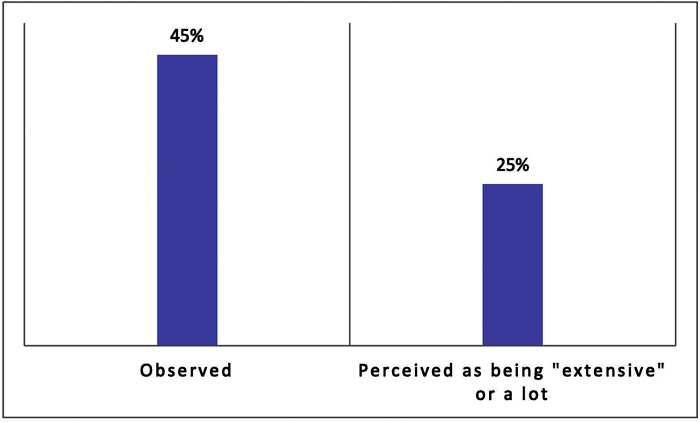With the 2024 Presidential election just around the corner, rhetoric surrounding immigration is once again heating up. In the midst of this political bombast, it can be easy to forget that the policies and approaches that are denigrated and praised at campaign stops often have a profound impact on children in the United States, seven percent of whom live with an undocumented parent or other family member. A recent policy brief by NEPC Fellow Patricia Gándara of UCLA, Lucrecia Santibañez of UCLA, Jongyeon Joy Ee of Loyola Marymount University, and Julieta Rico of UCLA calls attention to their plight, drawing upon a book published by Gándara and Ee in 2021. The research brief was published by three UCLA organizations: the Center for the Transformation of Schools, the Latino Policy & Politics Institute, and the Civil Rights Project/Proyecto Derechos Civiles.
Here are five key findings about ways in which anti-immigrant rhetoric and elevated rates of enforcement impact children, their families, and their schools. The results are based on a 2017-18 survey of more than 3,600 educators from 760-plus schools in 13 states.
- Student social emotional well-being: In order to avoid restricting access to essential services, Immigration and Customs Enforcement (ICE) officials are not supposed to take action in schools, hospitals, and other federally protected areas. In some areas of the country, however, local law enforcement officers have stepped in to assist ICE, and they do not necessarily abide by these guidelines. Children worry that agents can appear at any moment to remove them or their family members. In the words of one educator, “They worry they cannot trust anyone.” The report presents two separate numbers for each question asked: total reporting that they have observed a given impact, plus those reporting that they have observed that impact a lot (or extensively).

Share of Educators Who Say Increased Levels of Immigration Enforcement Impact Student Well-Being
- Academics: It is difficult for students to focus on reading, writing, and arithmetic when they are worried about deportation. Further, children who were themselves brought to this country without document by their parents are already facing a lifetime of obstacles that can make it challenging if not impossible to attend college and obtain legal employment. The brief notes that harsh immigration enforcement increases, by 18 percent, the odds that youth who are 14-17 years old, are children of immigrants, and are undocumented will drop out. For younger immigrants, aged 6-13, it increases the odds of repeating a grade by 14 percent. An increase in arrests related to immigration enforcement is also associated with declines in English language arts test scores for secondary Latinx English learners and with lower math test scores for all Latinx secondary students.

Educators Who Say Increased Levels of Immigration Enforcement Are Associated With a Negative Impact on Academic Performance
- Absenteeism: Absenteeism is already elevated in the wake of the pandemic. Increased levels of immigration enforcement could exacerbate the problem. “Educators surveyed shared how their students are frightened and sometimes remain absent from school for days when there are immigration raids in the area, or because of fear that their parents will be deported or detained while they are at school,” the research brief states.

Educators Who Say Increases in Immigration Enforcement Are Associated With Increased Student Absenteeism
- School climate: Survey results suggest that increases in immigration enforcement lead to spillover effects for non-immigrant families. These students worry about immigrant classmates who suddenly disappear or show up crying at school. Educators worry too. These concerns can impact the school climate for all students, regardless of immigration status.

Percentage of Educators Who Say Increases in Immigration Enforcement Impact School/Classroom Climate
- Parent involvement: Low-income immigrant parents already tend to engage less with schools for a variety of reasons. For instance, lower hourly wages can make it necessary to work longer hours, often at jobs where employees have limited control over their own schedules. Fears of immigration enforcement can further reduce engagement, as parents may avoid activities (such as driving to and from school) that can increase the odds of encountering law enforcement officials, while at the same time grappling with their own fears of deportation and separation from their children.

Share of Educators Who Say Increased Levels of Immigration Enforcement Are Associated With Decreased Parent Involvement
The brief concludes with eight policy and practice recommendations:
- Urge Congress to pass immigration reform that provides pathways to citizenship and permanent legal status.
- Invest in community schools that provide additional supports to low-income families, including immigrants.
- Identify community members who can help establish trust between educators and immigrant families.
- Create partnerships between schools and community organizations that support immigrant families.
- Support teachers who work with immigrant students so that they have the stamina to continue to support others.
- Hire counselors who speak the same language and understand the culture of children struggling with the emotional aspects of immigration enforcement.
- Hire more teachers with backgrounds and cultures similar to those of immigrant students.
- Provide professional development to teachers who support immigrant students. This may include making sure educators understand immigrant families’ rights so that they can safeguard them and explain rights to students and parents.

